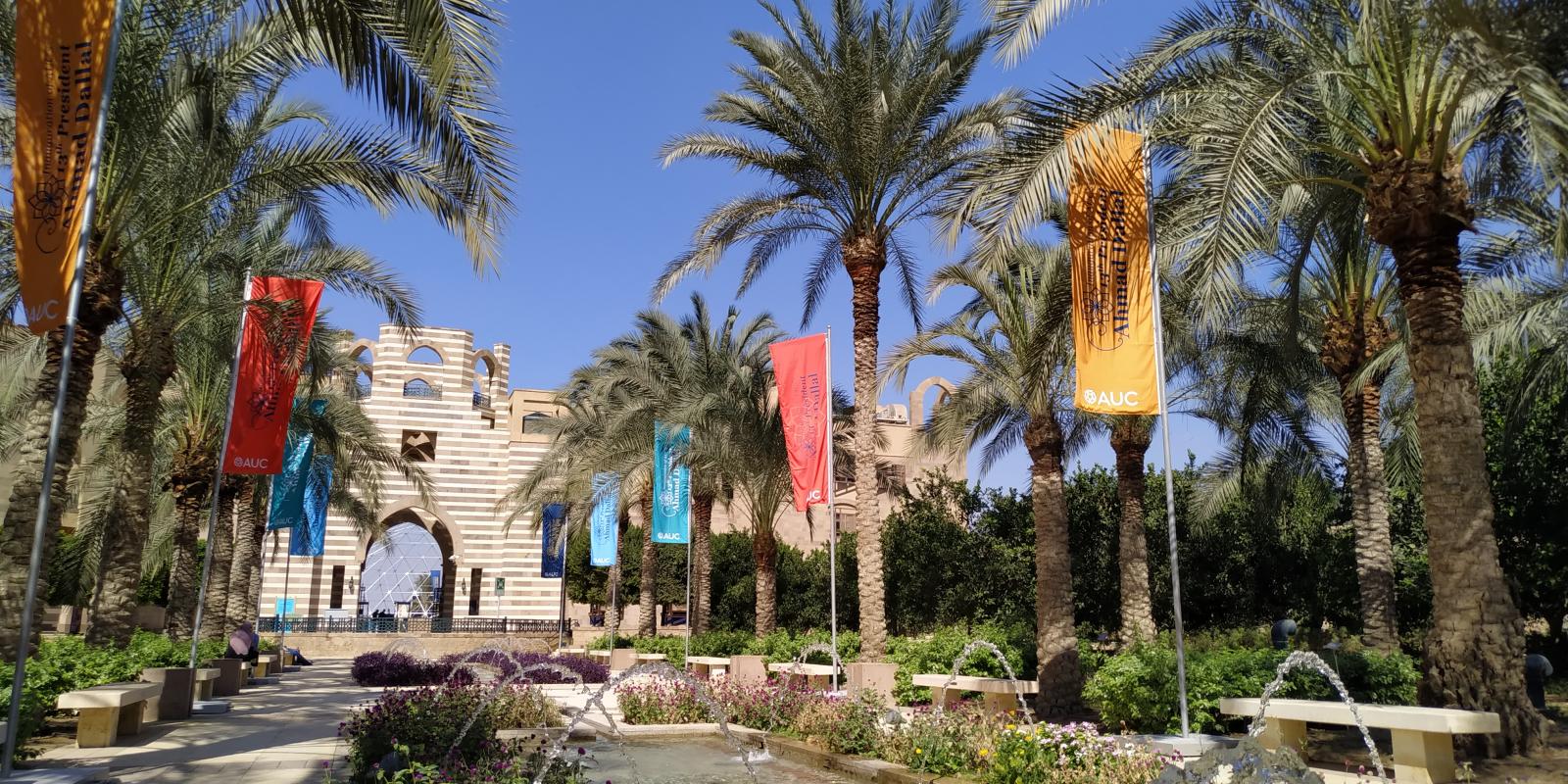
Presidential Inaugurations: A Tradition and Tribute
The inauguration of AUC’s 13th President Ahmad S. Dallal is just six days away, marking an important milestone for the University.
A presidential inauguration represents a new chapter in the life of a university and a special moment in its history. It serves as a “rite of passage’ to formally recognize the institution’s change in leadership and introduce the new president to the public –– rallying community engagement and support; reasserting the University’s institutional commitments, core values and distinct qualities; and drawing a vision for the future. The ceremony also marks a celebration of a university’s history as it takes a new step into the future.
Presidential inaugurations at U.S. universities are a long-held tradition that began in the 17th century with the nine colonial colleges, of which seven have become today’s Ivy League universities. Most inaugurations follow the same set of rituals and traditions, including a processional of the university leadership, senior officials and academic officers; former presidents; trustees; faculty; senior representatives of other universities and notable figures, as well as inaugural addresses by the new president, Board of Trustees chair and other dignitaries. An emblem, or medallion, made of gold, silver or bronze and bearing the university seal is typically presented to the new president.
At AUC, presidential inaugurations have been an integral part of the University’s history, drawing local and international attention and increasing the University’s global visibility and stature. For instance, at the 1946 inauguration of AUC’s second president, John Badeau, there was a special greeting from the 33rd U.S. President Harry Truman: “I take this opportunity to express my appreciation of the work of the American University at Cairo under the distinguished leadership of Dr. Charles Watson, and to send my best wishes for its continued success under Dr. Badeau’s administration.”
After almost two years of remote classes and work, holding an in-person ceremony and celebration of this historic moment will further reunite the AUC community and give a warm welcome to Dallal, AUC’s first Arab American president who brings with him a wealth of experience serving in prominent U.S. and regional universities.
While some universities either postponed or had strictly online inauguration ceremonies during 2020, widespread vaccination and a better understanding of the virus allowed universities to hold in-person ceremonies this year. Dallal will join other U.S. university presidents to be inaugurated during the COVID-19 pandemic this year. Indiana’s DePauw University held an in-person ceremony for its 21st president earlier this month, where all attendees were required to show proof of vaccination or a negative COVID-19 test, and masks were required indoors and outdoors throughout the event. Xavier University in Ohio is also welcoming its 35th president at the end of the month, while late September witnessed the ceremony of Seattle University’s 22nd president. Additionally, in-person inauguration ceremonies have taken place at the University of Texas at Austin, Southwestern University and the University of Scranton within the last month.
To ensure the safety of all community members, President Dallal’s live inauguration ceremony is by invitation only and subject to strict precautionary measures. However, there will be a number of areas on campus where the ceremony will be livestreamed, allowing viewers to watch while keeping a safe distance from others. Our alumni and friends of the University in different parts of the world will also be able to watch online. After the ceremony, the first-ever campus inauguration parade will take place starting from the auditorium and ending in Link Plaza, where a reception will be held. While musical performances and festivities are usually part of the ceremony, this year there will only be the parade due to COVID-19 safety measures. Learn more here about the precautionary measures in place during the inauguration.
A series of online panel discussions will take place one day before the ceremony and will include topics such as sustainability, global health and human ecology; migration and refugees; and data science and artificial intelligence.
